Abu Dhabi AI-Robotics Conference – Dialogue on Healthcare
Wednesday, April 23, 2025 - Friday, April 25, 2025

Dialogue on Healthcare
The Robotics Department of MBZUAI welcomes you to AIRoC:
As robotics and artificial intelligence become integrated into our daily lives, the need to understand their capabilities and potential becomes greater. We are proud to welcome you to the inaugural AI and Robotics Conference, hosted at our campus in Abu Dhabi. This first edition of the conference will focus on healthcare: an emergent theme in both AI and robotics.
Robotics was translationally introduced to therapeutic medicine in recent decades and made the innovation in minimally invasive surgery, tele-medicine, and active rehabilitation, as well as in improving the quality-of-life of the people of determination. The recent advance of AI such as Large-Language-Model, Vison-Language-Model, Reinforcement-Learning, Machine-Learning, Computer-Vision as well as Brain-Machine-Interface will take the relationship between robotics and medicine to the next horizon. AIRoC2025 aims to deepen the conversation, inspire new ideas, and trigger collaborations between experts, students, policymakers and industry leaders, and the general public.
Click here to download the PDF booklet on the AI-Robotics Conference.
Location-
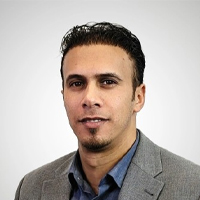 Abdalla Swikir
Abdalla Swikir
Assistant Professor -
 Anqing Duan
Anqing Duan
Visiting Assistant Professor -
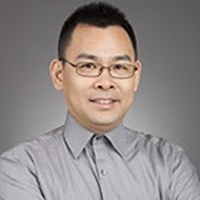 Dezhen Song
Dezhen Song
Professor and Deputy Chair
-
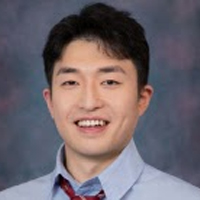 Ke Wu
Ke Wu
Visiting Assistant Professor -
 Sami Haddadin
Sami Haddadin
Vice President of Research and Professor of Robotics -
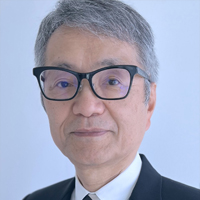 Yoshihiko Nakamura
Yoshihiko Nakamura
Professor and Chair
Directions
Keynote Talks on April 23, 2025
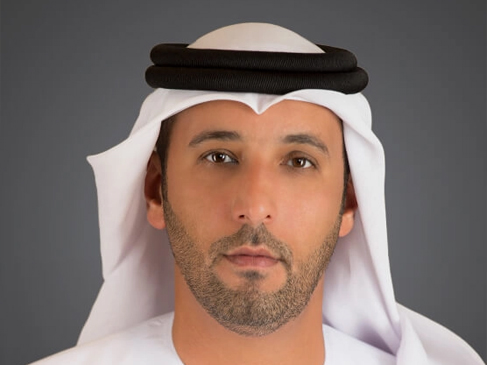
Empowering Inclusion through Artificial Intelligence: The Transformative Role of Zayed Higher Organization for People of Determination (ZHO)
Abstract: H.E. Abdulla Abdulalee AlHumaidan is a leading advocate for inclusivity and empowerment in the UAE. As Secretary-General of the Zayed Higher Organization for People of Determination since 2017, he has championed accessibility and social progress. With a background in management and a Master’s in Business Administration, he brings both expertise and passion to his work. He also serves as Deputy Vice-President of MENA at Rehabilitation International. His visionary leadership continues to drive positive change for individuals with determination. His Excellency’s leadership is driving transformative change, positioning the UAE as a global leader in inclusive innovation and demonstrating how technology can be harnessed to build a more equitable future for all.
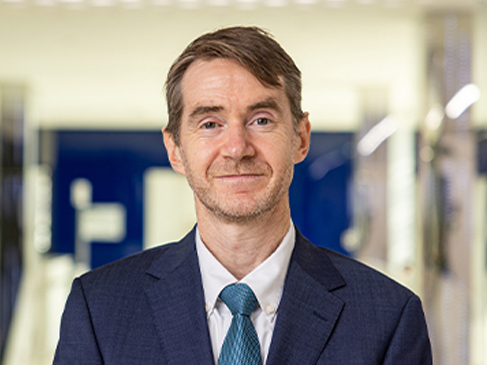
MBZUAI Public Health Program
Bio: Professor Baldwin’s primary research focus is on natural language processing (NLP), including deep earning, algorithmic fairness, computational social science, and social media analytics. Tim Baldwin is Provost and Professor of Natural Language Processing at Mohamed bin Zayed University of Artificial Intelligence, in addition to being a Melbourne Laureate Professor in the School of Computing and Information Systems, The University of Melbourne, and Chief Scientist of Libr AI, a start-up focused on AI safety.
Professor Baldwin is the author of around 500 peer-reviewed publications across diverse topics in natural language processing and AI, with over 25,000 citations, in addition to being the recipient of a number of prestigious awards at top NLP conferences. He is also a co-developer of widely used LLMs for languages including Arabic, English, and Indonesian, with over 1m downloads on Hugging face. He has been featured in media outlets including MIT Tech Review, Bloomberg, Reuters, The Economist, CNN, Financial Times, IEEE Spectrum, The Times, and ABC News, and his research has been funded by organizations including the National Science Foundation, Australian Research Council, Google, Microsoft, Xerox, ByteDance, NTT, and Fujitsu.

Human-Robot Symbiosis: From Human Modeling to Neurally-Driven Symbiotic Embodiment
Abstract: In developing transformative neuroengineering technologies for restoring autonomy and mobility to those with physical disabilities, a shift towards a more compatible, safe, and anticipatory human-centered approach is essential. This necessitates the integration of advanced AI and machine learning algorithms capable of leveraging high throughput sensory data (including kinematics, eye-tracking, invasive and non-invasive brain data) and human neuromechanics models (human digital twins). Rather than expecting humans to conform to and learn how to operate robotic systems, including prosthetics, robot neuroassistants, or brain-controlled humanoids, the focus is on designing systems that recognize human intent and emulate natural limb and whole-body behavior. This entails embedding models of human movement and interaction into robot learning and control algorithms, maximizing therapeutic effects and patient benefit as well as achievable autonomy. The core of this approach is the development of human digital twins driven by multi-modal sensory data, encompassing neuromechanics modeling, muscle dynamics, and control mechanisms. By learning from human physiology, robot systems can exhibit anthropomorphic traits and reflexes, achieving advanced capabilities while retaining humanlike responses. The use of intelligent control and learning algorithms enables the realization of AI-driven systems, such as prostheses, which facilitate real-time, user-in-loop interaction and functionality, such as grasping and motion compensation.
Under this new perspective, transformative technologies also advance beyond basic Brain Machine Interfaces (BMI), with the focus shifting from mere brain signal processing to neurally-driven symbiotic embodiments, aiming to decode neural signals for more natural human-like behavior in robotic systems. This includes decoding full state joint, impedance, and force policies and integrating human digital twins to enhance user embodiment. In summary, this new generation of transformative technologies paves the way for a new era of human-model-informed, symbiotic embodiments, enhancing the integration and effectiveness of AI-empowered robotic systems in various domains, particularly in healthcare and rehabilitation.
Bio: Sami Haddadin is Vice President for Research and Professor of Robotics at the Mohamed bin Zayed University of Artificial Intelligence. He has published more than 200 scientific articles and is recognized for his contributions to robotics and AI. Haddadin received his doctorate summa cum laude from RWTH Aachen University in 2011 and subsequently worked as a research assistant at the German Aerospace Center (DLR). From April 2014 to April 2018, he held the Chair of Automatic Control at the Gottfried Wilhelm Leibniz University Hannover, and from 2018 until January 2025, he was a professor and Chair of Robotics and Systems Intelligence at the Technical University of Munich (TUM). During this time he was also the founding and executive director of the Munich Institute of Robotics and Machine Intelligence (TUM MIRMI). Haddadin has been involved in various initiatives and commissions, such as the Robot Factory training program in Hanover and the Study Commission on Artificial Intelligence in the German Parliament. He has served on the EU High-Level Industrial Roundtable, Industry 2030, and the EU High-Level Expert Group on Artificial Intelligence. In 2020, he was appointed Chairman of the Bavarian AI Council. Haddadin has received several prestigious awards, including the Gottfried Wilhelm Leibniz Prize in 2019 and the Alfried Krupp Sponsorship Award for Young University Teachers in 2015. In 2017, he and his colleagues Simon Haddadin and Sven Parusel were awarded the German Future Prize for their work on affordable, flexible, and user-friendly robots. In 2021, Haddadin was elected a member of the German National Academy of Sciences Leopoldina.
Keynote Talks on April 24, 2025
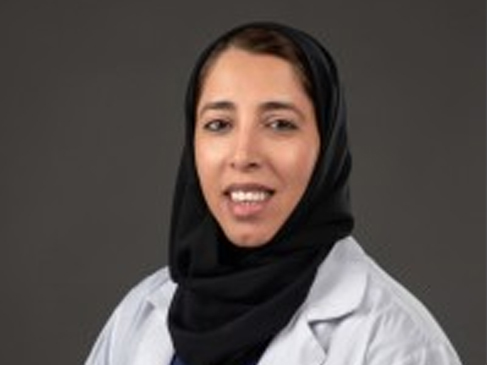
Artificial Intelligence in Medicine: Current Trends and Future Directions
Bio: Dr. Hassa Al Mazrouei serves as the Medical Director of Executive and International Patient Services and Patient Experience at Sheikh Shakhbout Medical City (SSMC), one of the United Arab Emirates' foremost tertiary academic hospitals. With over 15 years of clinical and leadership experience, Dr. Al Mazrouei is widely recognized for her contributions to advancing patient- centered care, operational excellence, and medical education. Her work is centered on enhancing the patient journey, optimizing clinical efficiency, and leading strategic service improvements across complex healthcare pathways. In 2025, she established and now leads SSMC's Rare Disease Program-an institutional initiative focused on improving access, coordination, and outcomes for patients with complex and underserved conditions.
Dr. Al Mazrouei is also a prominent advocate for digital transformation in healthcare. She completed the distinguished International Executive Program in Artificial Intelligence at the Mohamed bin Zayed University of Artificial Intelligence (MBZUAI), equipping her with the expertise to lead AI integration initiatives within clinical operations. Her approach combines deep clinical insight with a forward-looking vision to harness technology in elevating healthcare delivery.
A respected thought leader and international speaker, Dr. Al Mazrouei chairs the Scientific Committee of the International Patient Experience Symposium. Through this platform and beyond, she continues to shape the global discourse on experience-driven, data-informed, and innovation-led healthcare.
Dialogists
-
 Elizabeth Churchill
Elizabeth Churchill
Department Chair and Professor of Human-Computer Interaction View Details -
 Dezhen Song
Dezhen Song
Professor and Deputy Chair of Robotics Department View Details
Speakers
-
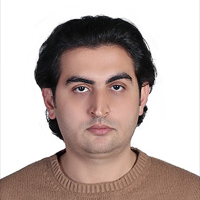 Ali Khalilian Motamed Bonad
Ali Khalilian Motamed Bonad
PhD Candidate Institute of Mechanical Intelligence, Scuola Superiore Sant'Anna, Italy View Details -
 Anqing Duan
Anqing Duan
Visiting Assistant Professor Robotics Department, MBZUAI, UAE View Details -
 Cesare Stefanini
Cesare Stefanini
Professor Director of the BioRobotics Institute,Scuola Superiore Sant'Anna, Italy View Details
-
 Cristina Piazza
Cristina Piazza
Assistant Professor School of Computation, Information and Technology, Technical University of Munich, Germany View Details -
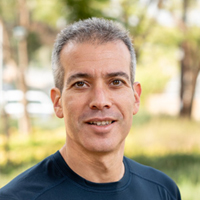 Eran Segal
Eran Segal
Adjunct Professor and Chair Computational Biology Department, MBZUAI, UAE View Details -
 Hanan Salam
Hanan Salam
Assistant Professor Computer Science,New York University Abu Dhabi, UAE View Details
-
 Hideki Kadone
Hideki Kadone
Associate Professor Institute of Medicine, Tsukuba University, Japan View Details -
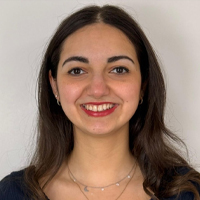 Imene Tarakli
Imene Tarakli
PhD Candidate Department of Computing, Sheffield Hallam University, UK View Details -
 Jun Morimoto
Jun Morimoto
Professor School of Informatics Kyoto University, Japan View Details
-
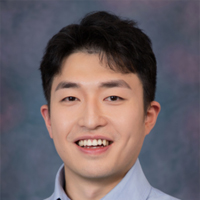 Ke Wu
Ke Wu
Visiting Assistant Professor Robotics Department, MBZUAI, UAE View Details -
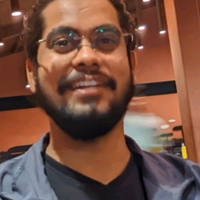 Mohammad Modassir Firdaus
Mohammad Modassir Firdaus
PhD Candidate Mechanical Engineering, Indian Institute of Technology Gandhinagar, India View Details -
 Olivier Oullier
Olivier Oullier
Professor Behavioral and Brain Sciences, Aix-Marseille University, France View Details
-
 Sunil Agrawal
Sunil Agrawal
Professor Mechanical Engineering & Rehabilitation and Regenerative Medicine,Columbia University, USA View Details -
 Tetsunari Inamura
Tetsunari Inamura
Professor Brain Science Research Institute,Tamagawa University, Japan View Details -
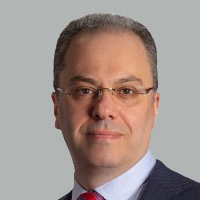 Waseem Aziz
Waseem Aziz
MD, Consultant Neurosurgeon Sheikh Shakhbout Medical City - SSMC, UAE View Details
-
 Yoshi Nakamura
Yoshi Nakamura
Professor and Chair Robotics Department, MBZUAI, UAE View Details
Program on 23 April, 2025
Guest Arrival and Registration
Abdalla Swikir, MBZUAI
H.E. Abdulla Abdulalee AlHumaidan, Secretary-General of Zayed Higher Organization for People of Determination, “Empowering Inclusion through Artificial Intelligence: The Transformative Role of Zayed Higher Organization for People of Determination (ZHO)”
Timothy Baldwin, Provost and Professor of Natural Language Processing, MBZUAI, UAE, “MBZUAI Public Health Program”
Eran Segal, MBZUAI, “Personalized medicine based on deep human phenotyping”
Yoshi Nakamura, MBZUAI, “Human Digital Twin and Humanoid Robotics”
Olivier Oullier, Aix-Marseille University, “AI-Driven Multimodal Interfaces for Improved Human-Robot Coordination Dynamics”
Buffet Lunch
Sami Haddadin, MBZUAI, “Human-Robot Symbiosis: From Human Modeling to Neurally-Driven Symbiotic Embodiment”
Moderator: Elizabeth Churchill, MBZUAI
Panelists: Olivier Oullier, Jun Morimoto, Imene Tarakli, Hanan Salam, Tetsunari Inamura
Jun Morimoto, Kyoto University, “Machine learning approaches for assistive robot control”
Imene Tarakli, Sheffield Hallam University, "Interactive Reinforcement Learning for Teachable Social Robots: A Peer-Based Framework for Inclusive Education and Cognitive Support"
Hanan Salam, NYU Abu Dhabi, “Adaptive Social Robots for Personalized Productivity Coaching for College Students with ADHD: A New Vision for AI in Healthcare”
Tetsunari Inamura, Tamagawa University, “AI and Robotics for Mental-Coaching Based on Self-Efficacy”
Program on 24 April, 2025
Guest Arrival and Registration
Moderator: Olivier Oullier, Aix-Marseille University
Panelists: Waseem Aziz, Cesare Stefanini, Mohammad Modassir Firdaus
Mohammad Modassir Firdaus, IIT Gandhinagar, “Advancing Minimally Invasive Surgery: A Cadaverically Validated Tendon-Driven Continuum Laparoscope for Colon and Abdominal Navigation”
Waseem Aziz, SSMC, “Robotic Cerebrovascular and Bypass Surgery: A Future of Enhanced Quality and Precision in Microsurgery”
Cesare Stefanini, Scuola Superiore Sant'Anna, “Biorobotics for Medicine: AI Unlocking New Opportunities”
Buffet Lunch
Hassa Saif Al Mazrouei, SSMC, “Artificial Intelligence in Medicine: Current Trends and Future Directions”
Moderator: Cesare Stefanini
Panelists: Hassa Saif Al Mazrouei, Anqing Duan, Cristina Piazza, Ke Wu
Anqing Duan, MBZUAI, "Skincare Services Empowered by Robotics and AI"
Cristina Piazza, Technical University of Munich, “Toward Bioinspired Bionic Limbs”
Ke Wu, MBZUAI, “Enabling Safe and Natural Physical Interaction: Deformable Robotic Systems in Healthcare”
Program on 25 April, 2025
Guest Arrival and Registration
Moderator: Dezhen Song, MBZUAI
Panelists: Sunil Agrawal, Hideki Kadone, Ali Khaalilian Motamed Bonab
Sunil Agrawal, Columbia University, “Rehabilitation Robotics: Improving Everyday Human Functions”
Hideki Kadone, Tsukuba University, “Innovative Medicine and Engineering Through Robotics and AI in Assistive Technologies - HAL, Qolo, and Motion Support Systems"
Ali Khalilian Motamed Bonad, Scuola Superiore Sant'Anna, “Hybrid Elbow Exosuits for Upper Limb Rehabilitation: A Soft Therapeutic Approach”
Dezhen Song
Data Observatory, Robotics Teaching Lab, Robotics Department
Venue
Multi Use Hall, MBZUAI Campus, Masdar City
Abu Dhabi, United Arab Emirates